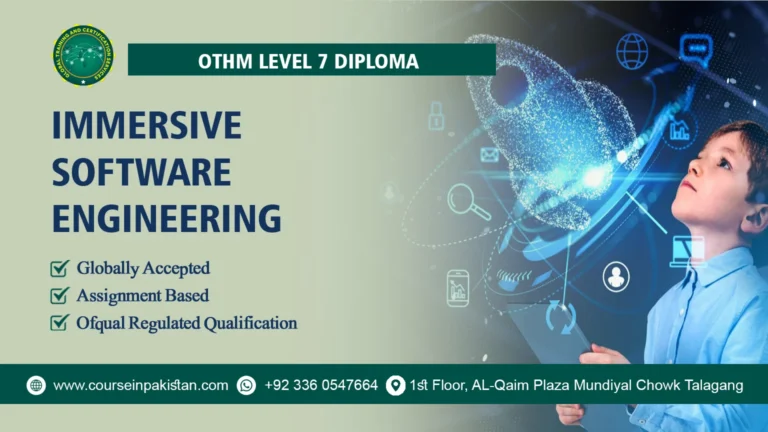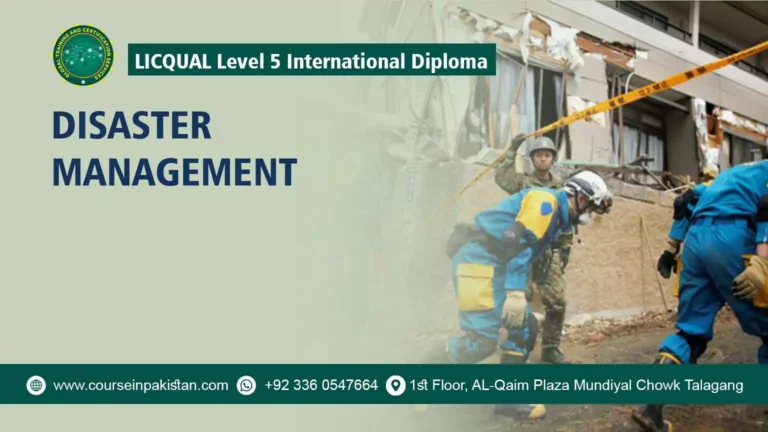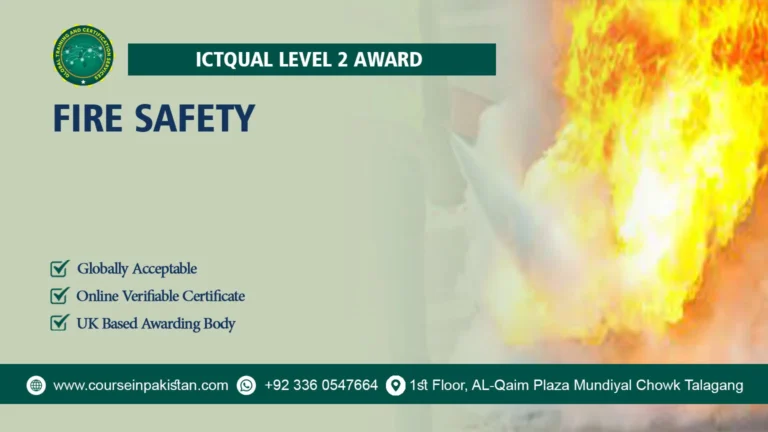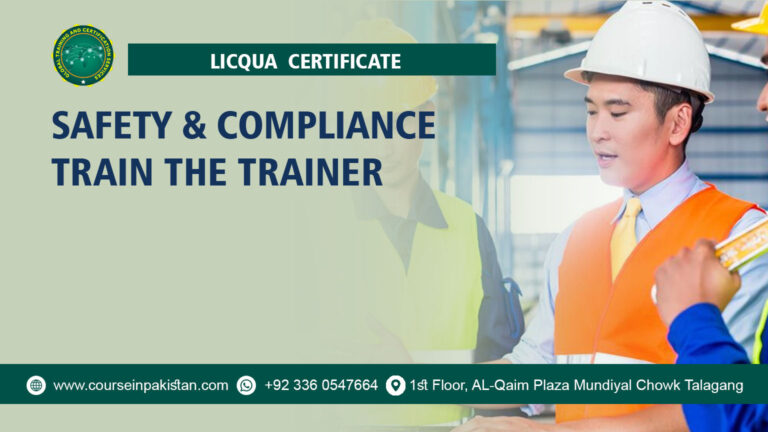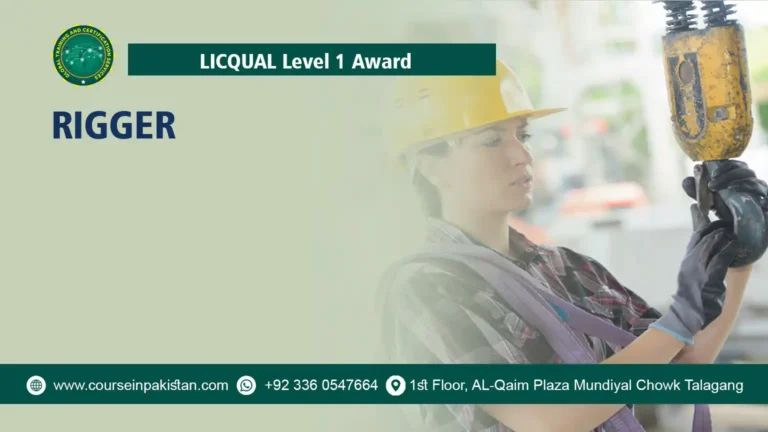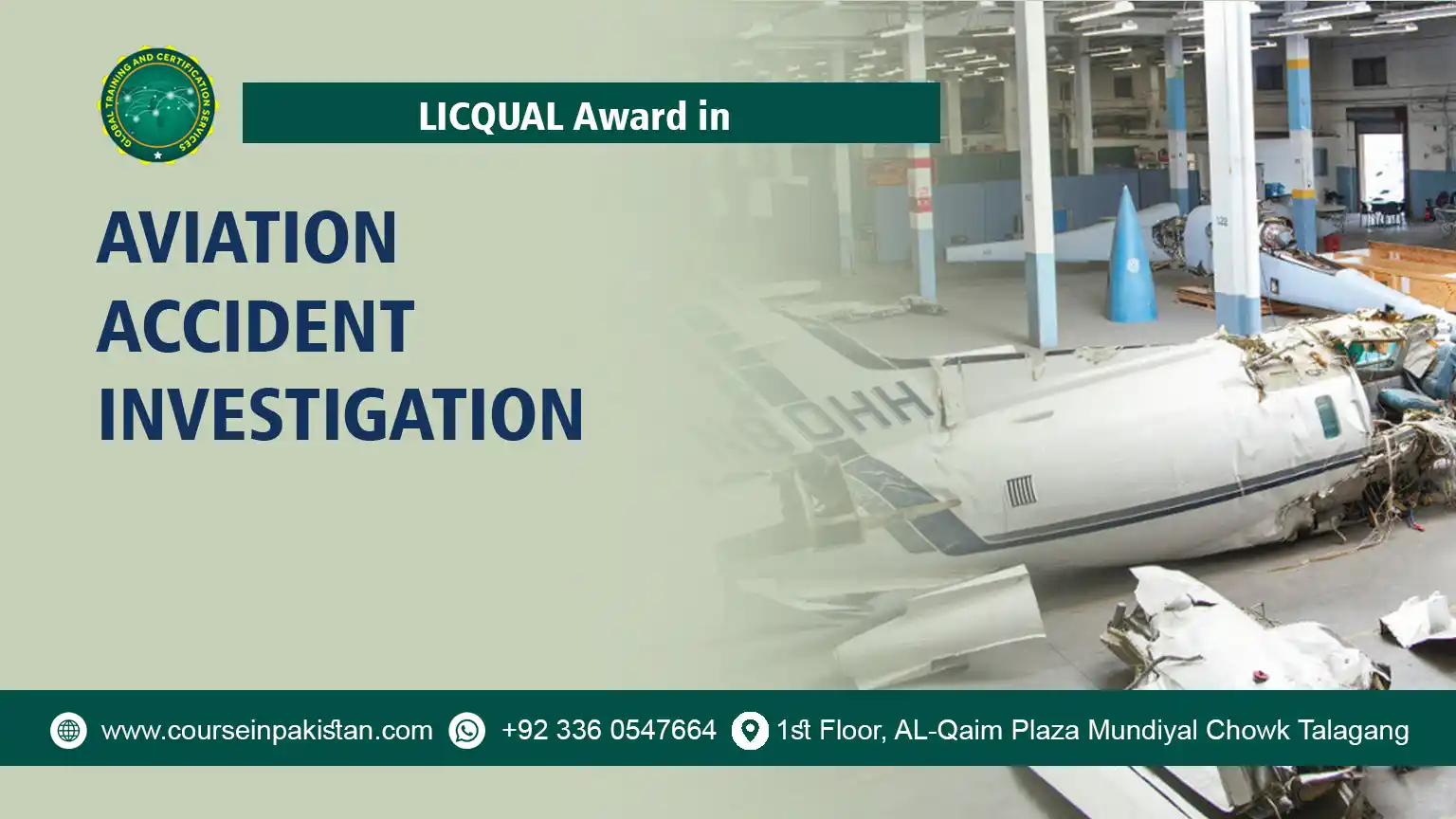
Award in Aviation Accident Investigation
Aviation safety is paramount in the realm of air travel, where rigorous investigation and analysis of accidents play a crucial role in preventing future incidents. The Award in Aviation Accident Investigation is designed to equip professionals with specialized skills and knowledge to effectively investigate aviation accidents, identify root causes, and recommend safety improvements. This course is essential for enhancing safety protocols, regulatory compliance, and the overall reliability of air transportation systems.
Course Introduction
The Award in Aviation Accident Investigation addresses the critical need for trained professionals capable of conducting thorough investigations into aviation accidents. Participants will delve into the complexities of air safety, studying methodologies, legal frameworks, and best practices specific to the aviation industry. This course prepares individuals to contribute significantly to aviation safety by meticulously analyzing accident scenarios and implementing preventive measures.
Course Overview
Participants will embark on a comprehensive journey through specialized study units that cover various facets of aviation accident investigation. The curriculum integrates theoretical knowledge with practical applications, featuring case studies and simulation exercises to simulate real-world scenarios. By the end of the course, participants will possess the skills necessary to navigate the complexities of aviation accidents, from initial response to final reporting.
Course Benefits
- Specialized Expertise: Gain in-depth knowledge of aviation accident investigation techniques and methodologies.
- Enhanced Safety: Contribute to the enhancement of aviation safety protocols and regulatory compliance.
- Career Advancement: Earn a recognized qualification that opens doors to roles in aviation safety management, accident investigation teams, and regulatory bodies.
Course Study Units
The Award in Aviation Accident Investigation typically includes study units such as:
- Introduction to Aviation Accident Investigation
- Roles and Responsibilities in Accident Investigation
- Accident Scene Preservation and Evidence Collection
- Human Factors in Aviation Accidents
- Interviewing Techniques for Aviation Investigators
- Data Analysis and Reconstruction in Aviation Accidents
- Root Cause Analysis in Aviation Accident Investigation
- Safety Recommendations and Reporting
- Regulatory and Legal Aspects of Aviation Accident Investigation
Learning Outcomes
Introduction to Aviation Accident Investigation
Learning Outcomes:
- Understand the fundamental principles and objectives of aviation accident investigation.
- Identify key stakeholders and their roles in the investigation process.
- Recognize the initial steps and protocols required to initiate effective aviation accident investigations.
Roles and Responsibilities in Accident Investigation
Learning Outcomes:
- Define the roles and responsibilities of various stakeholders involved in aviation accident investigation.
- Coordinate and collaborate effectively within multidisciplinary investigation teams.
- Implement clear communication and accountability mechanisms throughout the investigation process.
Accident Scene Preservation and Evidence Collection
Learning Outcomes:
- Utilize proper techniques for preserving aviation accident scenes to maintain evidence integrity.
- Demonstrate proficiency in collecting, documenting, and cataloging physical evidence from aircraft accident scenes.
- Ensure adherence to chain of custody procedures to support investigation findings and legal requirements.
Human Factors in Aviation Accidents
Learning Outcomes:
- Apply human factors principles to analyze crew performance, organizational influences, and human error in aviation accidents.
- Implement strategies to mitigate human factors issues and enhance aviation safety culture.
- Incorporate human factors findings into accident investigation reports and safety recommendations.
Interviewing Techniques for Aviation Investigators
Learning Outcomes:
- Apply specialized interviewing techniques to gather accurate and comprehensive information from witnesses, crew members, and stakeholders.
- Develop rapport and manage interviews to elicit detailed accounts of events leading to aviation accidents.
- Compile testimonial evidence that enhances understanding of incident sequences and contributing factors.
Data Analysis and Reconstruction in Aviation Accidents
Learning Outcomes:
- Analyze data collected from aviation accidents to reconstruct accident sequences and dynamics.
- Utilize simulation and modeling tools to recreate flight paths and assess aircraft performance.
- Interpret data analysis results to support investigation findings and safety recommendations.
Root Cause Analysis in Aviation Accident Investigation
Learning Outcomes:
- Apply root cause analysis methodologies, such as Fault Tree Analysis or Bowtie analysis, to identify underlying causes of aviation accidents.
- Analyze contributing factors including technical failures, operational errors, and systemic deficiencies.
- Recommend corrective actions and preventive measures based on root cause analysis findings to enhance aviation safety.
Safety Recommendations and Reporting
Learning Outcomes:
- Develop comprehensive safety recommendations based on investigation findings and analysis.
- Draft clear, concise, and objective aviation accident investigation reports that document methodologies, findings, and conclusions.
- Structure reports to effectively communicate investigation processes, safety recommendations, and lessons learned to stakeholders and regulatory authorities.
Regulatory and Legal Aspects of Aviation Accident Investigation
Learning Outcomes:
- Comprehend international and national regulations governing aviation accident investigation and reporting.
- Apply legal knowledge to ensure compliance with investigative procedures and reporting requirements.
- Navigate legal considerations related to liability, insurance claims, and litigation arising from aviation accidents.
These learning outcomes equip participants with the specialized knowledge and skills necessary to conduct thorough and effective investigations into aviation accidents. By mastering these study units, professionals are prepared to contribute to aviation safety, regulatory compliance, and accident prevention through meticulous investigation practices and proactive safety measures.
Who is This Course For?
The Award in Aviation Accident Investigation is suitable for:
- Aviation safety professionals and investigators responsible for analyzing and mitigating risks associated with air travel.
- Pilots, air traffic controllers, and aviation engineers interested in enhancing their understanding of accident investigation and safety protocols.
- Government regulators and aviation authorities involved in ensuring compliance with aviation safety standards and regulations.
Future Progression for This Course
Successful completion of the Award in Aviation Accident Investigation paves the way for career advancement and specialization within the aviation industry. Graduates may pursue advanced certifications in aircraft accident investigation, safety management systems, or human factors in aviation safety. Additionally, this qualification prepares individuals to lead accident investigation teams, contribute to policy development, and advance safety initiatives within airlines, regulatory bodies, and aviation consulting firms.
Award in Aviation Accident Investigation equips participants with critical skills to enhance aviation safety, regulatory compliance, and accident prevention through meticulous investigation and analysis. By mastering advanced investigation techniques and methodologies, professionals play a vital role in safeguarding air travelers and improving the overall reliability and safety of the aviation industry.

